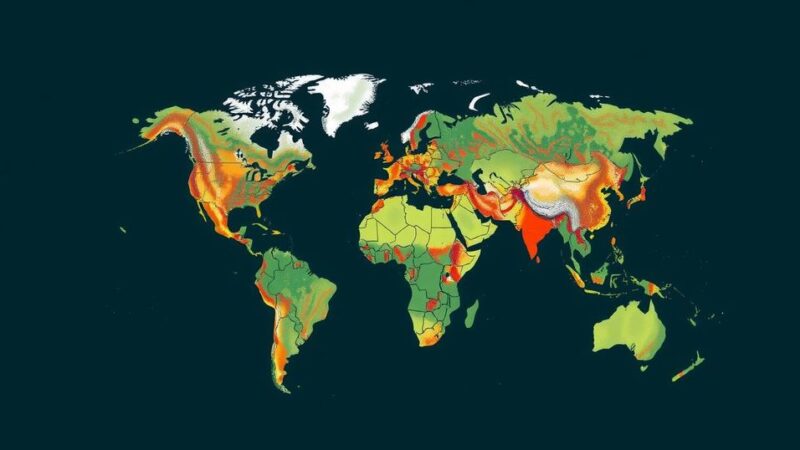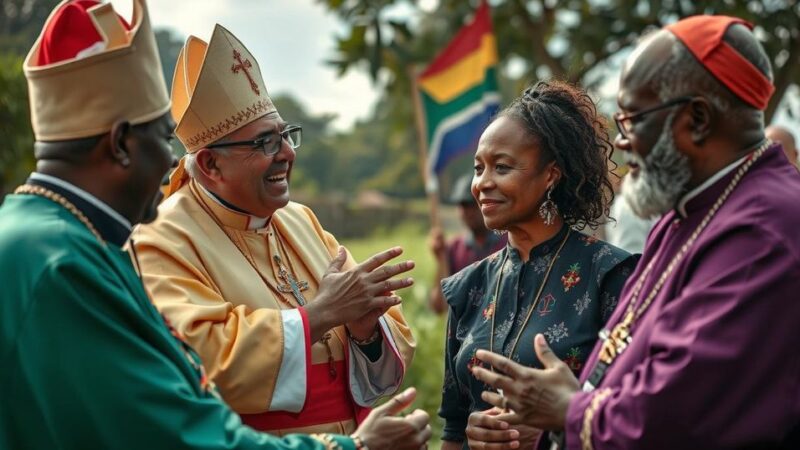At the G20 Summit in Rio, President Lula of Brazil urged developed countries to accelerate their climate neutrality targets to 2040 or 2045. He emphasized the responsibility of industrialized nations in addressing climate change, while advocating for collective progress and environmental justice. Lula called for an enhancement of commitments, highlighted Brazil’s clean energy initiatives, and proposed a Climate Change Council at the UN to unify efforts against climate issues.
During the G20 Summit in Rio de Janeiro, Brazilian President Luiz Inácio da Silva called on developed nations to expedite their climate neutrality targets from 2050 to 2040 or 2045. He stressed the significance of collective progress in combating climate change while emphasizing that industrialized countries must acknowledge their historical responsibility in contributing to greenhouse gas emissions. He remarked that climate neutrality entails offsetting emissions through mechanisms like carbon sequestration, and he underscored Brazil’s commitment to climate justice and sustainable development. President Lula highlighted that the escalating climate crisis demands urgent action, as the world is experiencing unprecedented environmental issues, including more severe floods and droughts. He pointed out the inadequacy of previous climate agreements, such as the Kyoto Protocol and the Paris Agreement, in achieving meaningful results and stated that the major G20 countries, which account for 80% of global emissions, must enhance their commitments to combat climate change. He proposed the Task Force for Global Mobilization against Climate Change, aimed at fostering discussions among finance ministers and environmental leaders to tackle the climate crisis effectively. Lula urged for the next round of Nationally Determined Contributions (NDCs) to align with the goal of limiting global temperature increases to 1.5ºC. He also presented Brazil’s new NDC at COP29 in Azerbaijan, which encompasses all sectors and gases. Additionally, President Lula reaffirmed Brazil’s clean energy profile, with a significant portion of electricity sourced from renewables and pledged to halve deforestation rates by 2030. He expressed the need for international cooperation in forest conservation while stressing that the preservation of the Amazon rainforest is critical to mitigating global warming. Confronting misinformation on climate change, Lula mentioned Brazil’s collaboration with the UN and UNESCO on a Global Initiative for Information Integrity on Climate Change. He also called for significant international funding from developed nations to support climate mitigation efforts in developing countries, asserting that without financial backing, lofty climate ambitions cannot be fulfilled. Lula condemned the diversion of funds to arms instead of addressing pressing climate issues. Finally, he urged the international community to assist in establishing a Climate Change Council at the UN, intending to unify fragmented climate actions. He concluded by asserting that hope reignites with every commitment made in defense of environmental preservation and that the upcoming COP30 in Belém, Brazil, represents a critical opportunity to effect meaningful change in climate policies.
The necessity for advanced nations to enhance their climate commitments is underscored by the growing urgency to address climate change. The G20 Summit serves as a critical platform where leaders of developed countries convene to discuss significant global issues, including sustainable development and climate action. The call for expedited climate neutrality goals reflects not only environmental concerns but also the demand for equitable responsibilities between developed and developing nations. With G20 countries contributing to the majority of global emissions, their leadership is deemed essential for effective climate policies.
In conclusion, President Lula’s address at the G20 Summit highlights the urgent need for developed nations to accelerate their climate action commitments. His plea for a shift in climate neutrality targets and increased responsibility underscores the principle of climate justice. As Brazil emerges as a leader in renewable energy and sustainability, it has also set ambitious targets for reducing deforestation and emissions. Lula’s advocacy for collaboration and unified efforts at the UN reflects a proactive approach toward addressing global climate challenges that require immediate attention and action.
Original Source: en.mercopress.com

